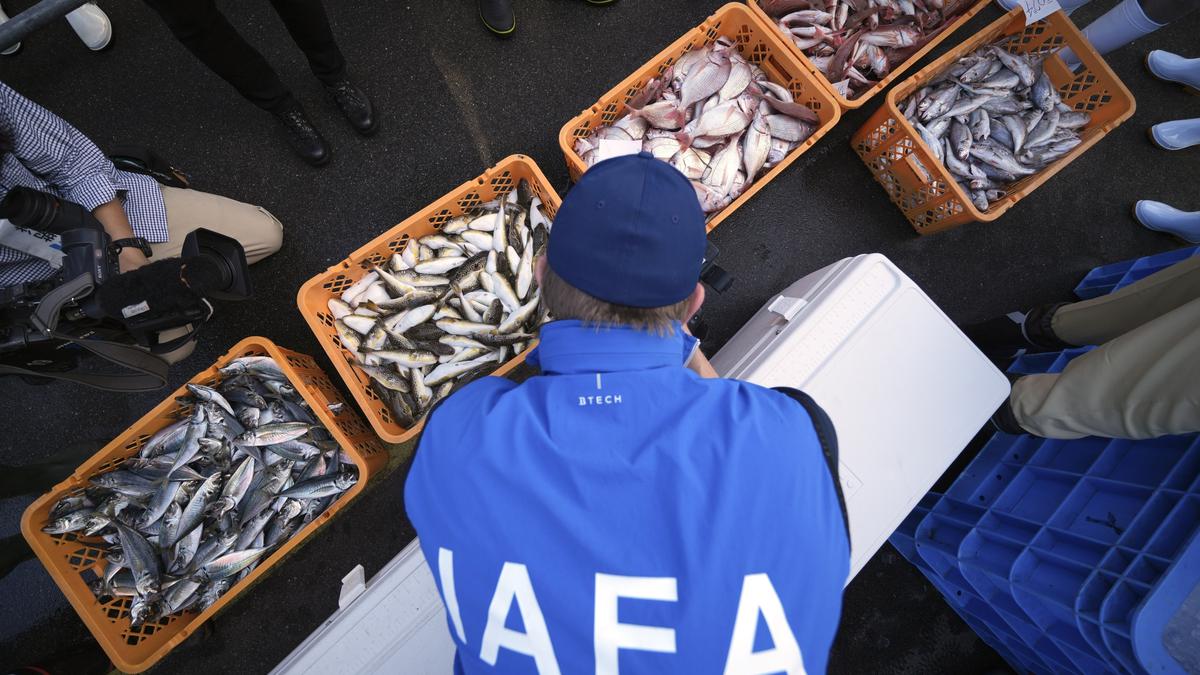United Nations (U.N.) inspectors recently conducted sampling operations at a fish market near the Fukushima nuclear power plant. This action followed the release of wastewater from the damaged facility in August. The situation has caused international tensions, with China and Russia imposing bans on Japanese seafood imports due to concerns over the safety of the water. Japan maintains that the water is safe, a stance that has been supported by the International Atomic Energy Agency (IAEA) thus far.
The backstory to this issue is rooted in the catastrophic events of 2011 when a massive tsunami led to the meltdown of three reactors at the Fukushima-Daiichi nuclear plant. This incident is widely considered one of the most severe nuclear disasters in the world. In the aftermath, Japan has had to grapple with the enormous challenge of managing the contaminated water generated by the facility’s cooling and containment processes.
To put the scale of the issue into perspective, approximately 540 Olympic-sized swimming pools worth of water have been collected since the disaster. This vast amount of water, tainted with radioactive substances, needs to be safely managed to prevent further environmental and health risks. Japan’s solution to this problem involves a complex filtration technology known as ALPS (Advanced Liquid Processing System), which effectively removes most radioactive materials from the water, although it does not eliminate tritium.
Tritium is a radioactive isotope of hydrogen, and it has been a major point of concern. While ALPS technology can significantly reduce other radioactive substances, tritium remains challenging to remove. Japan has maintained that the tritium levels in the treated water are within safe limits. However, this assertion has raised doubts and concerns among neighboring countries, leading to the involvement of U.N. inspectors.
The IAEA dispatched a team of scientists from China, South Korea, and Canada to collect samples of fish, water, and sediment in the vicinity of the Fukushima plant. The primary objective of this mission is to verify Japan’s claims about the safety of the water and the levels of tritium in it. As Paul McGinnity, a member of the IAEA team, explained, their mission aims to “ascertain whether the Japanese labs are measuring and analyzing properly” the tritium levels.
Tritium is of particular concern because it remains at relatively high levels even after the ALPS process. McGinnity anticipates that there won’t be significant changes in tritium levels in the fish samples, but there may be a slight increase in tritium levels in seawater samples near the discharge point. However, the expectation is that levels will largely mirror what was measured in the previous year.
To ensure impartiality and transparency, the collected samples will be sent to laboratories in the home countries of the IAEA team members for independent analysis. The IAEA will then evaluate these results and make them public, providing a more comprehensive and objective assessment of the situation.
The issue has led to geopolitical tensions, with Russia recently joining China in banning Japanese seafood imports. While Russia’s imports of Japanese seafood are relatively small in volume, this move aligns with the concerns raised by China. Japan, on the other hand, has accused China of politically motivated actions and considers Moscow’s ban unjust, especially without any scientific basis to support it.
At the heart of this complex issue is the necessity of releasing the treated water to create space for the removal of highly dangerous radioactive fuel and rubble from the damaged reactors. It’s a delicate balancing act between the need to manage the contaminated water and the concerns of neighboring countries over potential environmental and health risks. Japan’s use of the ALPS technology to treat the water is a significant step, but the challenge of addressing tritium remains a critical aspect that requires thorough and transparent international scrutiny.
In conclusion, the ongoing dispute over the release of treated wastewater from the Fukushima nuclear power plant highlights the complex and sensitive nature of nuclear waste management. Japan’s use of advanced technology to treat the water has mitigated many radioactive substances but concerns about tritium levels persist. The involvement of the U.N. inspectors and the IAEA is crucial in providing an impartial assessment of the situation. While tensions between countries persist, it’s essential to strike a balance between managing nuclear waste and addressing legitimate concerns about the environment and public safety.
